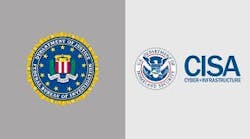President George W. Bush said yesterday he was determined to push an intelligence reform bill through Congress next week despite continued opposition from some powerful House Republicans.
"I want a bill," Mr Bush said during a news conference in Ottawa. "Let's see if I can say it as plainly as I can. I am for the intelligence bill."
The comments appeared aimed at dispelling growing doubts over whether the White House is committed to passage of the bill this year. US military leaders have said that one of the bill's core provisions, which would give a new national intelligence director budgetary authority over all US intelligence operations, could imperil Pentagon control over tactical military intelligence.
If Congress adjourns next week without passing a bill, intelligence reform is likely to be stalled until well after the new Congress convenes next year. The national commission that investigated the September 11 attacks urged congressional leaders yesterday to allow a vote on the bill when Congress returns for a final session next week.
The bill would easily win support in both the Senate and the House of Representatives but House Republican leaders do not want to divide their party by bringing the issue to a vote.
Thomas Kean, the commission's chairman, told reporters: "The choice is between this bill and the status quo.
"The basic structure of the intelligence community hasn't changed since 9/11," he said. "The status quo failed us. The status quo does not provide our leaders with the information they require to keep the American people safe."
Mr Kean and Lee Hamilton, the commission's vice-chairman, met Dick Cheney, the vice-president, yesterday afternoon to urge the White House to support the legislation.
Mr Bush told reporters that he had spoken with the key opponents of the bill, including Duncan Hunter, the House armed services committee chairman, and James Sensenbrenner, the House judiciary committee chairman, who wants tougher border security measures included in the legislation. But the president did not say whether he had asked them to back down.
The legislation is aimed at overcoming divisions within the intelligence community that the commission's investigation said were largely responsible for the failure to thwart the attacks. It would create a single national intelligence director to oversee some 15 US intelligence-gathering agencies, and a national counter-terrorism centre to co-ordinate the response.
The families of the 3,000 September 11 victims are more divided over the intelligence legislation. Most of the families, who were instrumental in pushing for the creation of the department of homeland security, support the existing bill. But some family members say that passing the bill without the tougher border rules called for by House Republicans would leave the US more vulnerable to attack.

